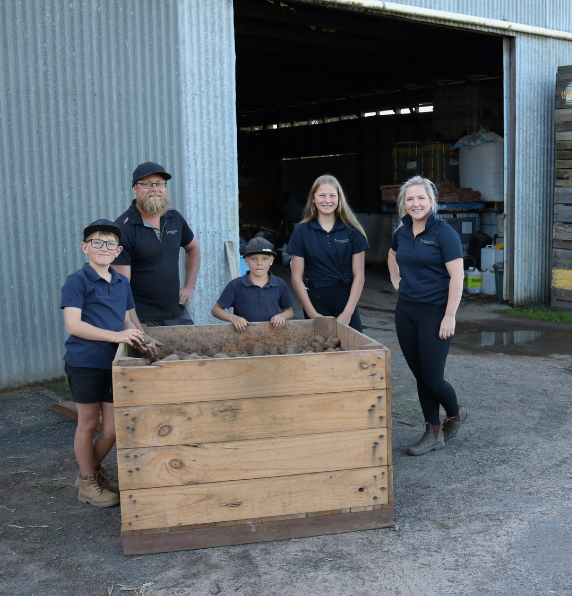
22 Sep Get to know your Growers: Damper Gully Farm
Q. How long have you been in farming (and specifically in potato farming) and how did you get started?
I’ve been in farming my whole life, I worked on a potato farm down the road from our farm when I left school for a couple of years and worked on the family farm before and after work on some days. Then I came to work full time at home and have been here ever since. I would say about 16 years working on our home farm.
Q. What is the history of your property — it is a family business?
Our farming operation is a family business. I am the 3rd generation to continue to farm and grow potatoes. Recently we have been through farming separation and succession and so Damper Gully Farms was born. The Damper Gully Farms company consists of myself and my wife and my parents.
Q. What makes your farm different to others in the area?
We are a 100% fresh market grower. I guess we are different because we have been trying new ways of improving our land and soil health over the past 5–6 years within the scope of potato growing which is a challenge as potatoes are high tillage.
The last couple of years have been a lot more regenerative focussed and we have been brave enough to trial some new things. We have been learning a lot.
Q. What type or regenerative and sustainable practises/ techniques are you implementing?
We seed multi species cover crops for winter and summer. This year we trialled planting our potatoes with Buckwheat, Field peas and Fava beans as a companion mix. 12 Months ago we made 2 Johnson & Su Bio-Reactors, which is a no turn, fungal dominant compost. The liquid from this is used to inoculate cover crop seeds, used in furrow at planting of potatoes. Before potatoes this year we have planted 2 types of Caliente mustard for bio fumigation.
Q. How can other growers expand their use of sustainable techniques and what do you think the future holds for potato farming/ horticulture in WA?
We would encourage other growers to be open to self education, it’s a never ending journey, there is a lot of information out there no matter what you grow and we can always be doing better. We think its vital we all think of the long term health and quality of our soils.
The future for potatoes is positive we hope! There will always be a need for fresh market potatoes, it will just depend if we can grow them in a cost effective way










